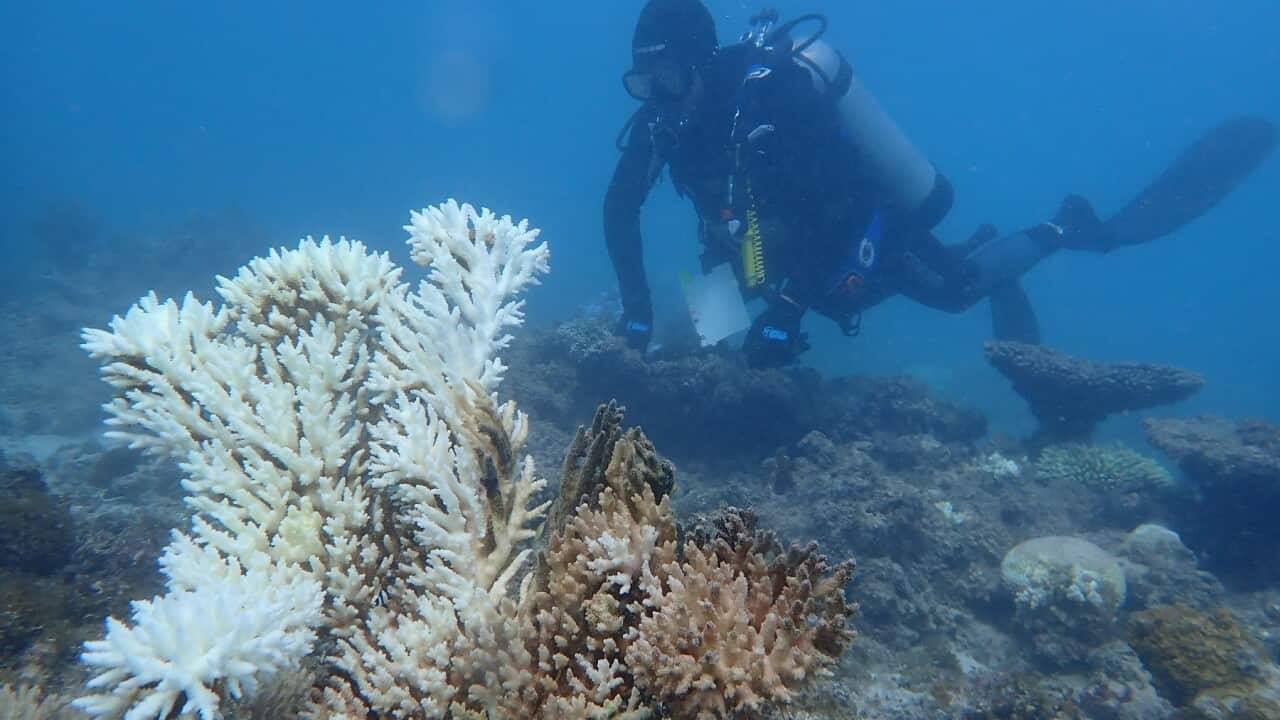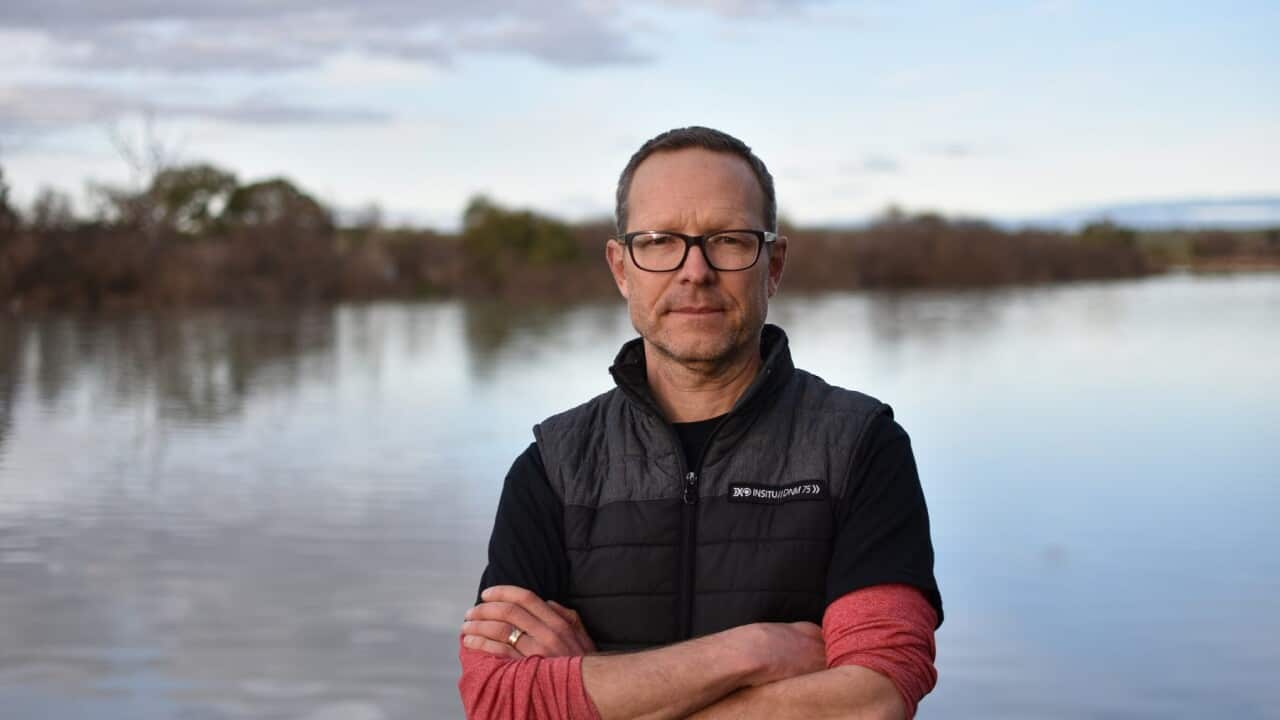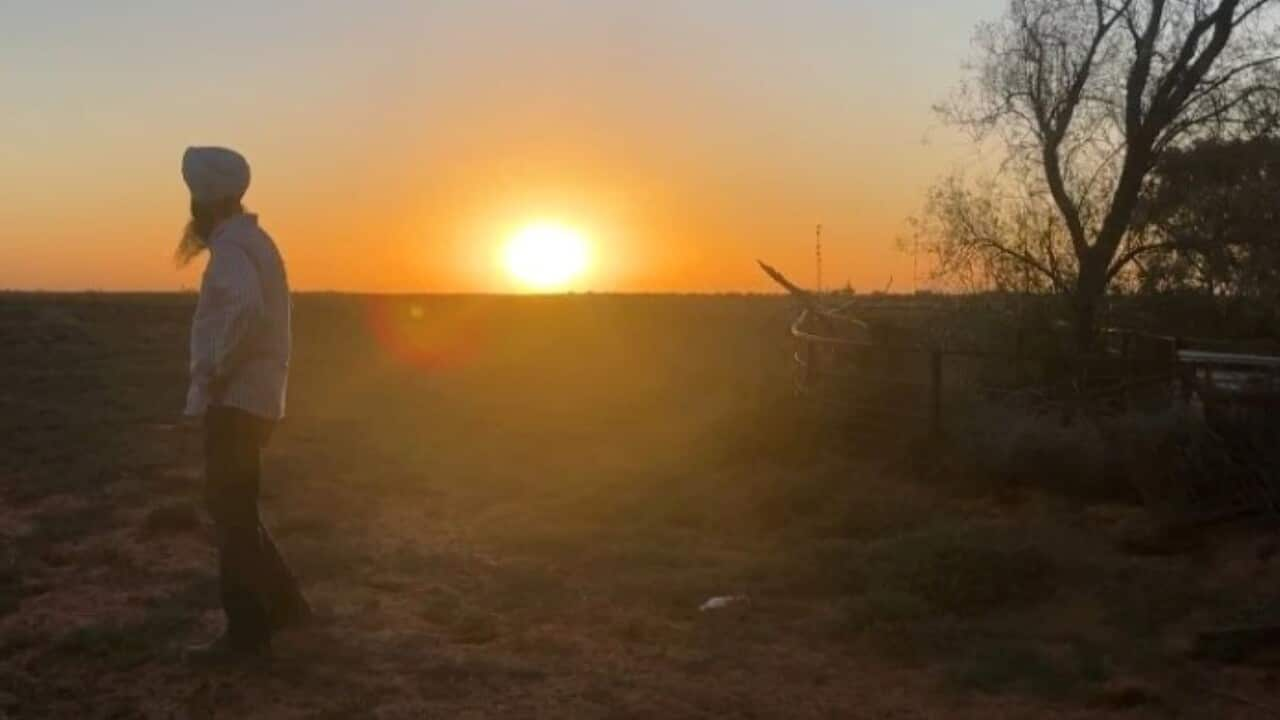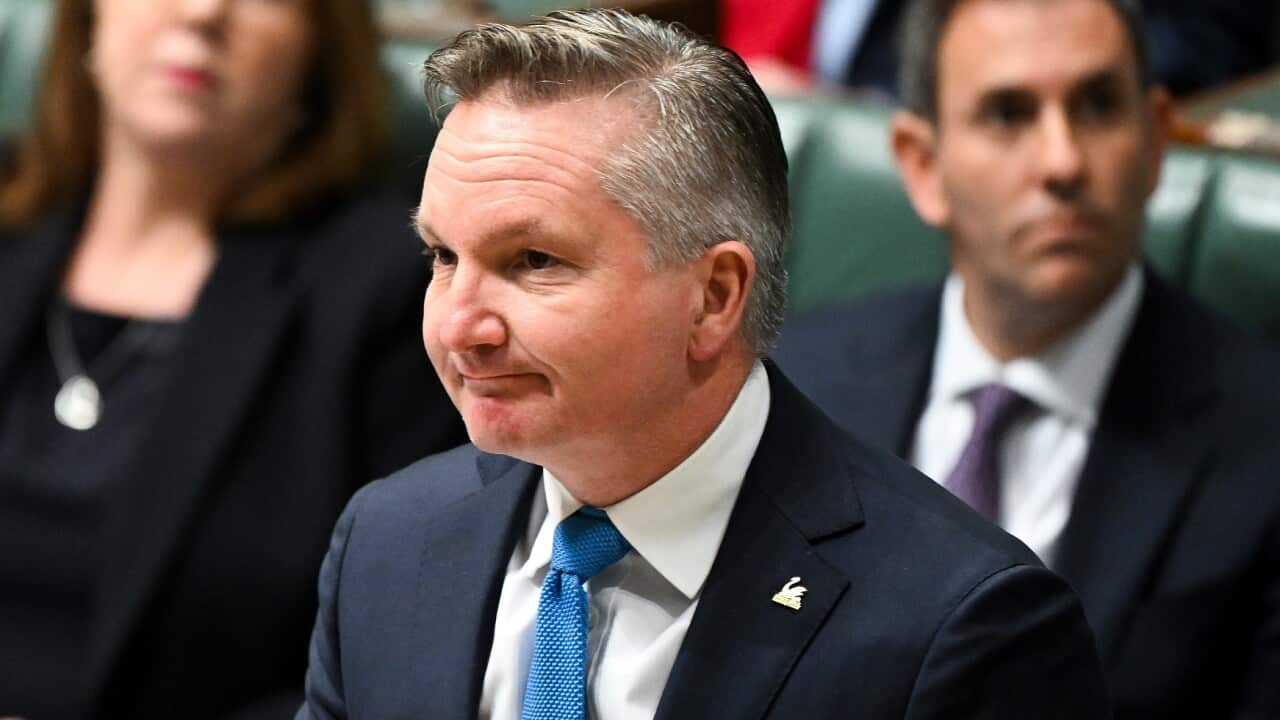Listen to Australian and world news, and follow trending topics with SBS News Podcasts.
TRANSCRIPT:
Australia's vibrant coral reefs are rapidly changing.
"So unfortunately, the ones that are most susceptible are also the ones that people class with, what you'd say was, beauty on a reef. So your Staghorns and your Platings, those corals that give it very bright colour and lots and lots of structure. So the reefs of our future, I think, will still be there to some extent, but they will change in how they look and how they function."
That was Dr Thomas Holmes, the Marine Science Program Leader at the Department of Biodiversity, Conservation and Attractions.
In 2024 to 2025, Western Australia experienced the most widespread coral bleaching event ever recorded for the state.
Coral bleaching occurs when corals expel the algae that live in their tissues, causing them to lose their colour and appear white.
Dr James Gilmour is a scientist at the Australian Institute of Marine Science.
He says one factor is the heat wave.
"This is a combination of the most intense heat wave. It's also been the longest and it's covered the largest spatial area. So it's really cover 1500 km of Western Australian reefs and it's gone on for several months."
But the main cause, according to scientists, is rising temperatures due to carbon emissions.
Dr Gilmour says the heat stress was more intense and widespread than previously.
"What we've seen is temperatures have increased by a degree or up to four, and that has remained for several months, so it is really that cumulative heat stress that has caused corals to bleach, and in some instances, to cook and die."
Most coral reefs across Australia's north western coast have suffered from coral bleaching events this year.
Mermaid and Clarke reefs in the Rowley Shoals, around 260 kilometres off Broome, were hit hard, recording mortality rates between 61 and 90 per cent.
Elsewhere, the World Heritage-listed Ningaloo Reef experienced high bleaching and mortality between 31 and 60 per cent.
"We know, generally speaking, that it takes about a decade for a reef to recover from a severe bleaching event, but unfortunately, what we're seeing now, at about 1.5 degrees above pre-industrial (levels), is that bleaching events are happening every few years. So they really are lacking this capacity to recover. There is some level of adaptation, and there are some patches of reefs that are escaping and that is really ... Pursuing those differences are really a focus for future research."
The Great Barrier Reef was also affected, making it the first time two World Heritage reefs on opposite sides of the country were bleaching simultaneously.
Last year, the Great Barrier Reef experienced the largest-ever annual decline in coral cover in two of its three regions.
Dr Gilmour says the consequences of coral bleaching go further than the reef.
"So, we've seen in our symposium today, the consequences are far-reaching for the loss of corals. They obviously form the ecosystem, many other animals feed on the corals or use the corals for shelter but then we these carry-on effects not only to corals but to fish, to bird life and to other marine mammals."
More than 100 scientists and marine managers gathered in Perth this week [[12/08]] to discuss the data they've collected over the last six months.
They'll now work to determine how much coral could still recover.













